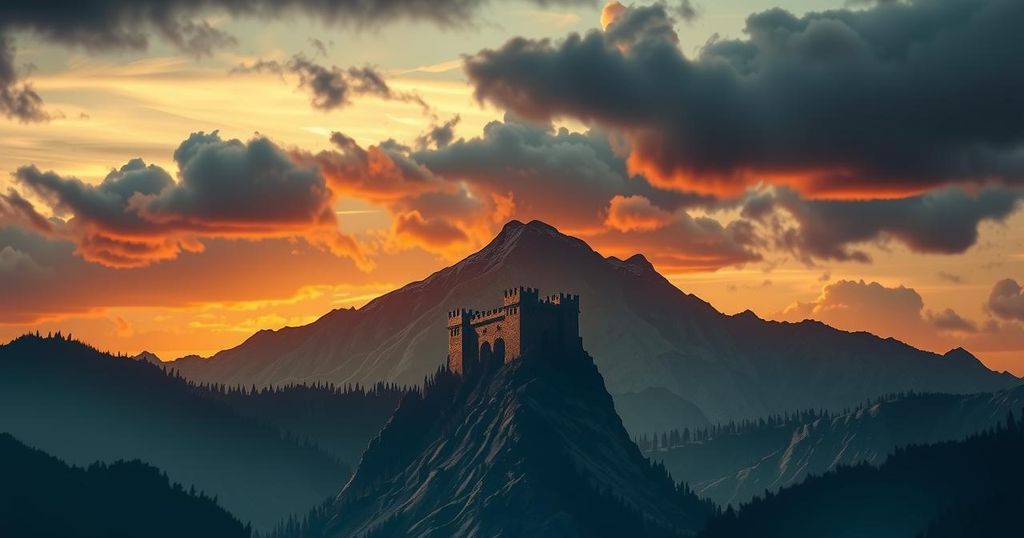World news
” BISIMWA, AFP, AFRICA, AL JAZEERA, BERTRAND BISIMWA, CIVIL WAR, CONGO (KINSHASA), DEMOCRATIC REPUBLIC OF THE CONGO, DRC, FELIX TSHISEKEDI, GO, GOMA, HUMANITARIAN, HUMANITARIAN CRISIS, KATOYI, KENYA, KIBWE, KINSHASA, M23, MABANGA, MAJENGO, MALCOLM WEBB, MILITARY, RWANDA, SEXUAL VIOLENCE, TURUNGA, US, VINCENT KAREGA, WAR
Elena Martinez
0 Comments
Rwanda-Backed M23 Rebels Accelerate Control Over Goma Amid Crisis
M23 rebels, supported by Rwanda, have taken control of Goma in the DRC, leading to a humanitarian crisis with increasing casualties and displacement. International calls for a ceasefire intensify as M23 continues to advance, exacerbating food shortages and suffering among civilians. Diplomatic efforts are ongoing, aiming for negotiations to address the conflict.
The M23 rebels, backed by Rwanda, have significantly enhanced their control over Goma, the largest city in Eastern Democratic Republic of the Congo (DRC). This development marks a detrimental setback for the Congolese army amidst a conflict that has resulted in significant casualties and mass displacements over recent years. Following their entrance into Goma, the rebels claimed to have fully taken over the city shortly thereafter, after three days of clashes resulting in over 100 deaths and nearly 1,000 injuries.
As fighting diminished in Goma, sporadic gunfire persisted in its northern suburbs, indicating continued tension. Bertrand Bisimwa, M23’s political leader, asserted their commitment to securing peace in the area, stating that their operations aimed to eliminate any remaining threats from opposition forces. Local reports indicated that M23 and Rwandan troops now control key areas, including the airport and much of the city center, contributing to a notable reduction in daily activity and commerce.
The humanitarian crisis in Goma is alarming, as various aid organizations warn of dire consequences, including potential mass displacements and severe food shortages. The United Nations has raised concerns regarding the capacity of hospitals and the spread of diseases due to overcrowding and lack of basic resources. Reports from Doctors Without Borders reflect the dire situation within health facilities, with incidents of armed looting directly affecting medical services and staff safety.
As M23 continues its advance, the conflict’s humanitarian ramifications grow increasingly severe. Organizations such as the International Committee of the Red Cross have underscored the dire need for safe access to aid for civilians suffering from the fighting. The World Food Programme has warned about potential disruptions to food supplies if violence persists in Goma, further exacerbating the situation.
M23, a group of Tutsi fighters, emerged in 2012 following dissatisfaction within the Congolese armed forces regarding treatment. Accusations of Rwandan support for M23 are ongoing, despite Rwanda’s denial. M23 previously seized Goma in 2012 but relinquished control amid international pressure. The resurgence of M23 activity since 2022 has once again intensified conflict in the region.
Recent diplomatic engagements have prompted calls for a ceasefire, with the United States and European nations urging negotiations to end hostilities. In a significant diplomatic effort, U.S. Secretary of State Marco Rubio urged Rwandan President Paul Kagame for an immediate ceasefire. Concurrently, DRC President Felix Tshisekedi is expected to address the nation amidst ongoing concerns regarding the rising violence in Goma and its potential escalation beyond the city limits.
The International Crisis Group has emphasized the necessity for negotiation to prevent further bloodshed. Proposals for a potential compromise have been suggested, including M23’s withdrawal from Goma in exchange for the establishment of an alternative administrative force from the East African Community during any ongoing negotiations.
The ongoing conflict in the eastern Democratic Republic of the Congo (DRC) has a complex background characterized by the presence of multiple armed groups, including the M23, which are often linked to broader regional tensions. The DRC has grappled with security issues for decades, exacerbated by political instability, ethnic tensions, and external influences. The M23 movement, primarily composed of Tutsi fighters, has claimed to fight for the rights of minority populations in the region. Rwanda’s alleged support for M23 has drawn accusations of interference in DRC’s internal affairs, complicating diplomatic relations and peaceful resolutions.
The situation in Goma remains precarious, with M23 firmly establishing control amidst significant humanitarian crises. The international community’s calls for a ceasefire and negotiations underscore the urgency of addressing the underlying causes of conflict. Without intervention, the potential for widespread violence affecting civilians and destabilizing the region is increasingly likely. Stakeholders are urged to engage constructively to foster peace and stability in Goma and beyond, as the humanitarian toll continues to escalate.
Original Source: www.aljazeera.com




Post Comment